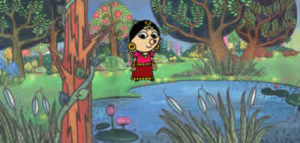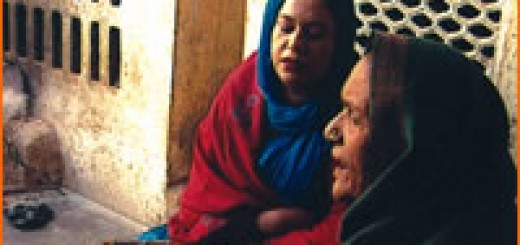‘Instant Culture – pushing children too far?
‘Instant Culture – pushing children too far?
An Examination of the competitive pressures of our educational system
by
Divya Raina

The Innocent World of Children’s transgressed ?
–“ Conspicuous Achievement.”
This phrase implies that a child must transform himself into some sort of prodigy and excel. The most likely areas are sports, ‘conspicuous’ social causes, being super-fluent in a foreign language, or being the musical equivalent of Beethoven. ‘Leaving no stone unturned’ has become a middle-class parent’s motto. Landing a seat in some elite college is no longer enough apparently.
In India, are we aware of what are we doing to our own children? Yes, our own middle-class children, our so-called privileged youth? Now that summer is here, are not Delhi’s children being packed off to summer workshops? Are they not spending the scorching summer learning “something useful”? Why is ‘getting bored’ no longer an option? Spending time alone is unheard of. It’s like leaving the tap water running. Such an obscene waste. Activities such as introspection, thinking, doodling, drawing, just exploring one’s universe are certainly not even considered activities, and kids who do this are condemned, reprimanded, considered lazy, moody, shy, unsocial and impractical. Spontaneous creative activity done at home, is ‘too messy’, too time consuming, vague and without any direction or goal.
And who dares to spend waking hours day- dreaming? Being sensitive is ghastly; one has to have a thick skin to survive. After all; it’s a parent’s job to see that his kid is street-smart, assertive, if not downright aggressive. Morals, values, and ethics take a backseat to cut-throat competition. After all, it is a “dog-eat-dog” world out there, and for this purpose one must be thoroughly trained and prepared. Who remembers the lines “…What is this life if, full of care, we have no time to stand and stare?”
We are told repeatedly that our children need constant diversion. Yet watching TV is like selling one’s soul to the devil. For most parents, simply surfing the net unsupervised makes them anxious about their kids getting to unsuitable sites. If sending them to the hills or even some exotic locale is not possible, and we don’t want them hanging out in air-conditioned malls or movie-multiplexes all the time; and when buying the latest gadgetry, branded cell phones and designer clothing is inadequate; we simply have to ensure that they must not remain idle, hence, the old adage about an idle mind being the devil’s workshop is trotted out as justification.
For those in school, holiday homework is something that will be finished off in the last week or so of the hols. Vacation time must be spent acquiring something else, an extra–curricular skill that is fun and keeps the child gainfully employed for some, if not all the time. Dance classes, from kathak to salsa, yoga camps, squash or chess, swimming, theatre, piano playing and what –have-you, all are considered vital. If one can actually swing some membership to clubs and special centers, then this potpourri of skill-learning will get even better.
Reading, though highly valued, seems the most challenging for parents. The very word ‘classic’ seems anathema to kids, and a ‘good’ book translates to ‘boring’. To explain, or to justify this, is the convenient cliché doing the rounds; “the dwindling attention-span of today’s kids and their inability to focus for long”. If a child still shows some inclination to read then let him/her attend a reading workshop where he /she will be able to plough through specially selected titles for a fee and which will be conducted by some specialist aunty or uncle, whose manner appears more magnanimous than the average school teacher.
Far from de-schooling society, it is as though we want school all the time. Everything has to be structured, pre-digested, pre-packaged and sold to the anxious consumer/ parent. And the parent is totally consumed with anxiety and often guilt about providing the very best he can afford, or obtain.
When did we stop becoming parents and become instructors instead? All the time, that we are with our children we are hell-bent on instructing them, on teaching them something or the other: at the dining table it is all about saying robotic “please” and “thank you” , traveling anywhere becomes a lesson in geography, opening a newspaper is all about current affairs and improving general knowledge. The examples can be multiplied, even visits to a park is all about botany or keeping fit. We are in a position of authority; the child must simply go along with what we have planned for him/her
Often, elderly relatives are now being valued as culture givers, heritage communicators, with their smattering of folk-lore, wise, pithy sayings, and interpretations of the epics, and dusty tomes or antiquated relics of the past are being venerated in many homes in a manner never seen before. Parents who dump children with elderly relatives feel that by some strange process of cultural osmosis “good Indian values” will seep through to their video-game-ridden minds, and they will be purged. Regional languages will be spoken and not forgotten, there will be the nurturance of the glorious value of Respect for Elders. Time spent with kids is always ‘quality time’ and caregivers, home-makers, and nurturers are becoming adept in the multiple roles of chauffeurs and registration experts who alertly scout for the very best workshops and sessions that the city has to offer. Time is at a premium; time-slots and schedules are vital.
What underlies this frantic activity that parents seem to face? Is it seen as an inability to provide the very best cultural inputs? Does it stem from the fear that the homogenizing influences of our televised, globalized world is reducing each child to looking and dressing alike, speaking and even thinking in a similar fashion? Is it a fear that unless a child has some exceptional talent that is recognized by all, the ‘portfolio’ of their accomplishments will be inadequate?
This entire rigmarole, which we know has begun when four year old children are packed off to ‘confidence building workshops’, comes to a head at the time of college admissions, bringing out tremendous inherent inner fears of rejection. This is the time when the most claustrophobic competition gets underway. Isn’t this getting a seat in a prized college or brand-name institution, the ultimate nirvana? Isn’t this what those who committed suicide over their non-performance in the dreaded exam time were made to feel totally inadequate about?
Has it anything to do with a vicarious realizing of our own unfinished dreams? Is it an “I never had the ability/opportunity/finances to do what I wanted to, so I must seize this chance and ensure my son/daughter is able to.” Is it less about molding our children, and more about our own unfinished business?
And what does the child think and feel about this? Does the young adult have a say in this process? Or does he/she mindlessly go along with whatever has been planned? Look around you and you will get your answers.











